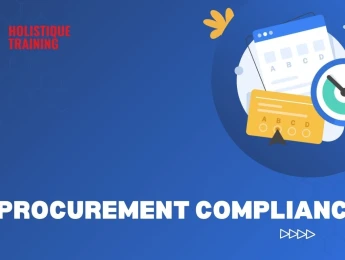Effective planning and control management are crucial for the production process to continue as desired within any organisation. This certainly reigns true within the manufacturing industry. Maintaining effective planning and control throughout the production lifetime is vital in ensuring all deadlines are met, all resources are correct, and there is minimal waste.
Planning and control encompasses all aspects of production, including raw materials, labour, and equipment used. As modern technology has developed, many organisations are turning to digital networking systems for resource management. Certain network designs can allow full access to available inventory and make procurement much more straightforward.
Not only are networking systems becoming increasingly popular, MRP and ERP systems are still widely used and respected. These systems help manage in-puts and out-puts of resources and provide great insight into future supply chain and resource changes. To prosper within planning and control in a manufacturing setting, it is vital to have a great understanding of these systems and various resource management models.
Upon completion of this course, participants will be able to:
- Understand the importance of planning and control within a manufacturing environment.
- Acknowledge the consequences of poor planning and control.
- Accurately estimate the amount of material, equipment and labour required for production.
- Create production schedules in alignment with resource availability to ensure the production deadlines are met.
- Identify and adequately plan for internal and external influences impacting the production process.
- Monitor production costs and make necessary adjustments to reduce these where possible.
- Consistently monitor and measure performance throughout the production process.
This course is designed for anyone in the manufacturing industry responsible for planning and controlling the production process. It would be most beneficial for:
- Operations Managers
- Project Managers
- Supply Chain Directors
- Financial Advisors
- Planning and Design Managers
- Senior Executives
- Production Planners
- Procurement Officers
This course uses a variety of adult learning styles to aid full understanding and comprehension. Participants will review case studies of established organisations and their planning and control methods to highlight the use of MRP systems and models to manage inventory.
They can partake in various learning exercises to guarantee a strong development of the taught content and related skills. These learning exercises include presentations, video materials, demonstrations, and practical activities. This combination of activities allows the participants to fully engage with the course, gain practical experience and receive constructive instructor feedback.
Day 5 of each course is reserved for a Q&A session, which may occur off-site. For 10-day courses, this also applies to day 10
Section 1: Fundamentals of Planning and Control
- Explain the purpose of planning and control and its necessity and importance within manufacturing.
- Exploring what internal and external factors can influence production productivity.
- What functions must be planned for to ensure success – equipment, labour costs and more.
- Identifying the production goal and creating effective plans to meet deadlines.
- Determining the right supply chains and resources for the project.
Section 2: Forecasting
- The importance of utilising forecasting models when planning.
- Developing forecasting models using various methods – regression, casual, aggregate, and more.
- Comparing the benefits and limitations of using static and adaptive forecasting models.
- Identifying what model is most suitable for different types of operations.
- Tools to aid in effectively collecting and analysing data to use within forecasts.
Section 3: Cycle and Safety Inventory
- Analysing production functions and processes and estimating necessary inventory.
- Balancing the effects of demand and supply uncertainty and understanding how to compensate for these.
- Developing various inventory pooling models.
- Incorporating strategies for cycle inventory reduction.
- The purpose and process of setting safety stocks for different inventory policies.
- Conducting continuous and periodic reviews of inventory and policies.
Section 4: Network Design
- Utilising networks to manage inventory data to increase production efficiency.
- How to make ideal and effective network design decisions.
- Finding solutions for a range of common problems using network design models.
- Implementing e-procurement systems to yield greater manufacturing benefits.
- Managing transportation and transhipment through networks to guarantee more proficient outcomes.
Section 5: Material Requirement Planning and ERP Systems
- Recognising the difference between independent and dependent demand items.
- Explaining the purpose and concepts of MRP and ERP systems and how they are advantageous for a manufacturing organisation.
- Assessing in-puts and out-puts with MRP.
- Balancing the use of MRP, ERP and APS and understanding the ideal circumstances for each system.
- Performing MRP calculations surrounding inventory management.
Upon successful completion of this training course, delegates will be awarded a Holistique Training Certificate of Completion. For those who attend and complete the online training course, a Holistique Training e-Certificate will be provided.
Holistique Training Certificates are accredited by the British Assessment Council (BAC) and The CPD Certification Service (CPD), and are certified under ISO 9001, ISO 21001, and ISO 29993 standards.
CPD credits for this course are granted by our Certificates and will be reflected on the Holistique Training Certificate of Completion. In accordance with the standards of The CPD Certification Service, one CPD credit is awarded per hour of course attendance. A maximum of 50 CPD credits can be claimed for any single course we currently offer.
- Course Code IND14-103
- Course Format Classroom, Online,
- Duration 5 days














